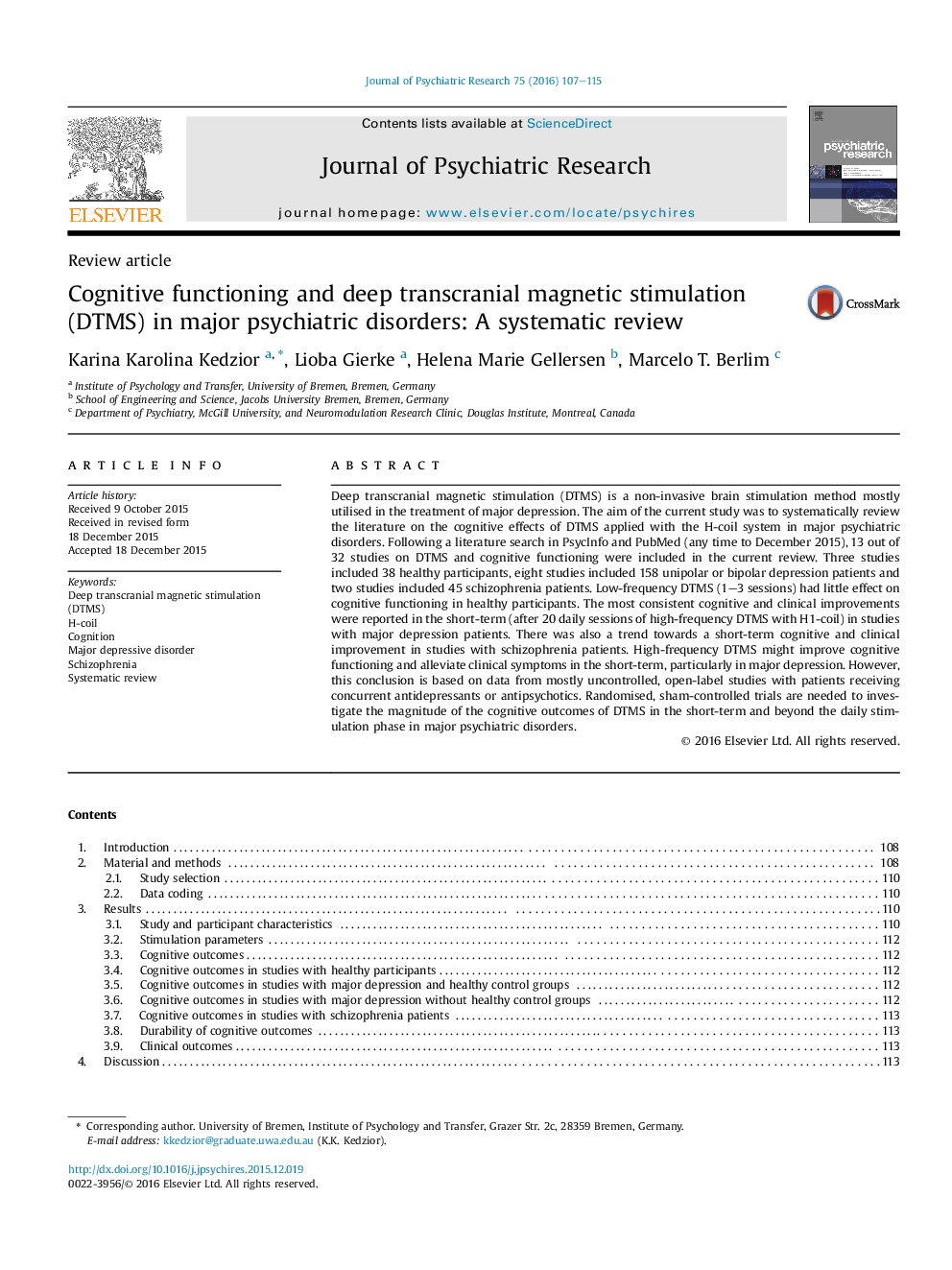| Article ID | Journal | Published Year | Pages | File Type |
|---|---|---|---|---|
| 327549 | Journal of Psychiatric Research | 2016 | 9 Pages |
•DTMS improved cognitive functioning particularly in major depression.•Cognition improved after 20 high-frequency DTMS sessions with H1-coil.•Cognitive functioning was not affected by DTMS in healthy participants.•These results are based on data from 13 studies with 241 participants.
Deep transcranial magnetic stimulation (DTMS) is a non-invasive brain stimulation method mostly utilised in the treatment of major depression. The aim of the current study was to systematically review the literature on the cognitive effects of DTMS applied with the H-coil system in major psychiatric disorders. Following a literature search in PsycInfo and PubMed (any time to December 2015), 13 out of 32 studies on DTMS and cognitive functioning were included in the current review. Three studies included 38 healthy participants, eight studies included 158 unipolar or bipolar depression patients and two studies included 45 schizophrenia patients. Low-frequency DTMS (1–3 sessions) had little effect on cognitive functioning in healthy participants. The most consistent cognitive and clinical improvements were reported in the short-term (after 20 daily sessions of high-frequency DTMS with H1-coil) in studies with major depression patients. There was also a trend towards a short-term cognitive and clinical improvement in studies with schizophrenia patients. High-frequency DTMS might improve cognitive functioning and alleviate clinical symptoms in the short-term, particularly in major depression. However, this conclusion is based on data from mostly uncontrolled, open-label studies with patients receiving concurrent antidepressants or antipsychotics. Randomised, sham-controlled trials are needed to investigate the magnitude of the cognitive outcomes of DTMS in the short-term and beyond the daily stimulation phase in major psychiatric disorders.
